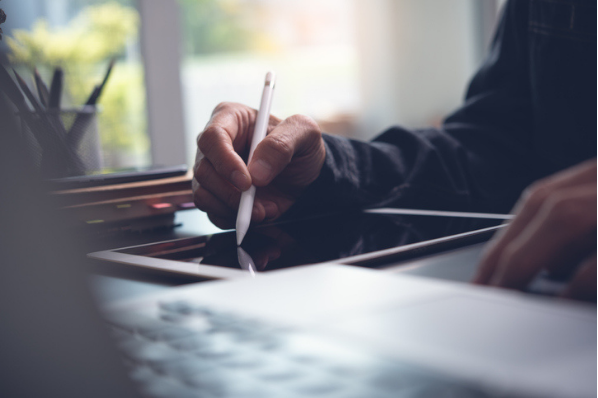

What do you typically do during your last few hours before you go to sleep? According to the National Sleep Foundation, 95% of people spend this time on their gadgets.
At the end of a long day, browsing social media, watching TV, or surfing the web sounds pretty good. But the most successful people -- the top 5% -- aren’t doing any of those things.
Instead, they’re setting themselves up for success the next day.
To learn how to sleep better, feel less anxious, and be more productive, check out these 10 ultra-successful people’s nighttime routines.
Arianna Huffington Primes Her Brain For Sleep
If you have trouble falling -- and staying -- asleep, borrow Arianna Huffington’s nighttime ritual. Huffington, founder of The Huffington Post and author of The Sleep Revolution, says she takes her transition to sleep seriously.
First, she turns off all of her devices and takes them out of her bedroom. Then, if she’s worried or stressed about something, she’ll take a calming bath. (Not into baths? Try meditating or writing down what’s giving you anxiety.)
Huffington used to wear workout clothes to bed, but not anymore.
“Think of the mixed message that sends to our brains,” she explains.
Instead, Huffington has clothes specifically dedicated to sleeping. This instantly puts her brain into “sleep” mode.
Chris Guillebeau Measures His Impact
Chris Guillebeau, world traveler and best-selling author of Born for This, is almost always going to bed in a different place than he woke up. He developed a nighttime routine that’s simple enough to work wherever he goes.
At the end of the day, Guillebeau asks himself, “Did today matter?”
This exercise helps him stay accountable and assess whether he made measurable progress (however small) toward his goals.
He also decides what he’ll wear the next day and packs his bag so he’s not wasting creative energy in the morning on these considerations.
Last but not least, Guillebeau chooses one task he’ll complete the next morning.
“I’ve learned that this little touch helps a lot on busy days -- by the time I get to the office, I already have something off my plate,” he says.
Steve Kamb Avoids Nonfiction
Steve Kamb, founder of Nerd Fitness, doesn’t have a TV in his room. The screen’s blue light, combined with the show’s “cognitive stimulation,” is scientifically proven to harm sleep quality.
Instead, he powers down with 15-20 minutes of reading. And not just any book: It needs to be fiction.
“I find if I read nonfiction it makes me come up with ideas and my brain won’t let me sleep,”he says.
Dustin Senos Pays Attention to His Energy Cycles
For the best sleep, don’t go to sleep at an arbitrary time. You’ll find it much easier to doze off if you work with your body’s natural energy rhythms.
“I was once told that tiredness comes in 45-minute cycles,” says Dustin Senos, former head of design at Medium and creator of Wallcat.
“The first cycle is feeling tired followed by 45 minutes of feeling awake,” Senos adds. “This cycle repeats until you are unable to stay awake.”
He pays close attention to how alert he feels. When Senos begins to feel tired, he immediately gets into bed.
Manoush Zomorodi and Ann Handley Prepare What They’ll Need the Next Day
The majority of high-powered people set out essential items for the morning the night before. Note to Self host Manoush Zomorodi, for example, lays aside her exercise gear, headphones, and coffee money so she can immediately wake up and work out.
“Also, I’m super distracted and forgetful in the morning so I write myself notes like ‘Don’t forget to pack charger!’ or ‘Healthy snacks!’”she says.
Ann Handley, two-time author and chief content officer of MarketingProfs, prepares a pot of coffee to brew when she wakes up.
Small measures like this can make a big difference when you’re struggling to get moving in the morning.
Morgan Jaldon and Jake Kahan Reflect On Their Days
Pondering the past 14 or so hours is a great way to clear your mind and set yourself for a successful next day.
Morgan Jaldon, a professional marathon runner, does this right before she closes her eyes.
“I reflect on my entire day: What my favorite part about it was, what I could make time to do the next day, etc.,” she says.
Meanwhile, creative director of Matter Unlimited Jake Kahan writes a daily log.
“I keep track of everything I’ve done that day,”he explains. “It helps keep me present and aware of how I spend my time.”
Andre Wagner Cleans His Space
When you’re tired, putting away your stuff usually seems like the least appealing activity on the planet. But if you want some quality shut-eye, it might be a good idea. According to the National Sleep Foundation, a tidy bedroom helps the majority of adults sleep better.
Andre Wagner, a recognized photographer, always takes a couple minutes at night to clean up.
“Waking up to a clean apartment is the absolute best,”he says. “It keeps my mind clear.”
Rand Fishkin Tackles His Email
You know tomorrow will bring another flood of messages, so if you can muster up the energy, borrow Rand Fishkin’s nighttime habit.
Fishkin, founder and former CEO of Moz and co-founder of Inbound.org, tries to go to sleep “as close to inbox zero as possible.”
“I get a lot of email and I do my best to keep up with all of it,”he says.
Just make sure you’re not spending an extra hour every night sending emails -- you don’t want to make yourself burn out.
Revamping your nighttime routine gives you a leg up each and every day. Sweet dreams.









